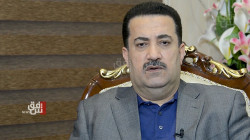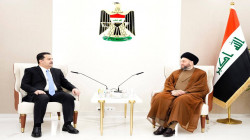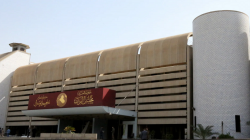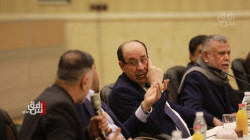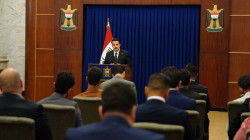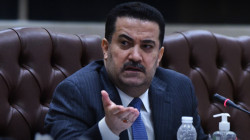Iraqi PM highlights investment opportunities and economic reforms in meeting with U.S. Chamber of Commerce
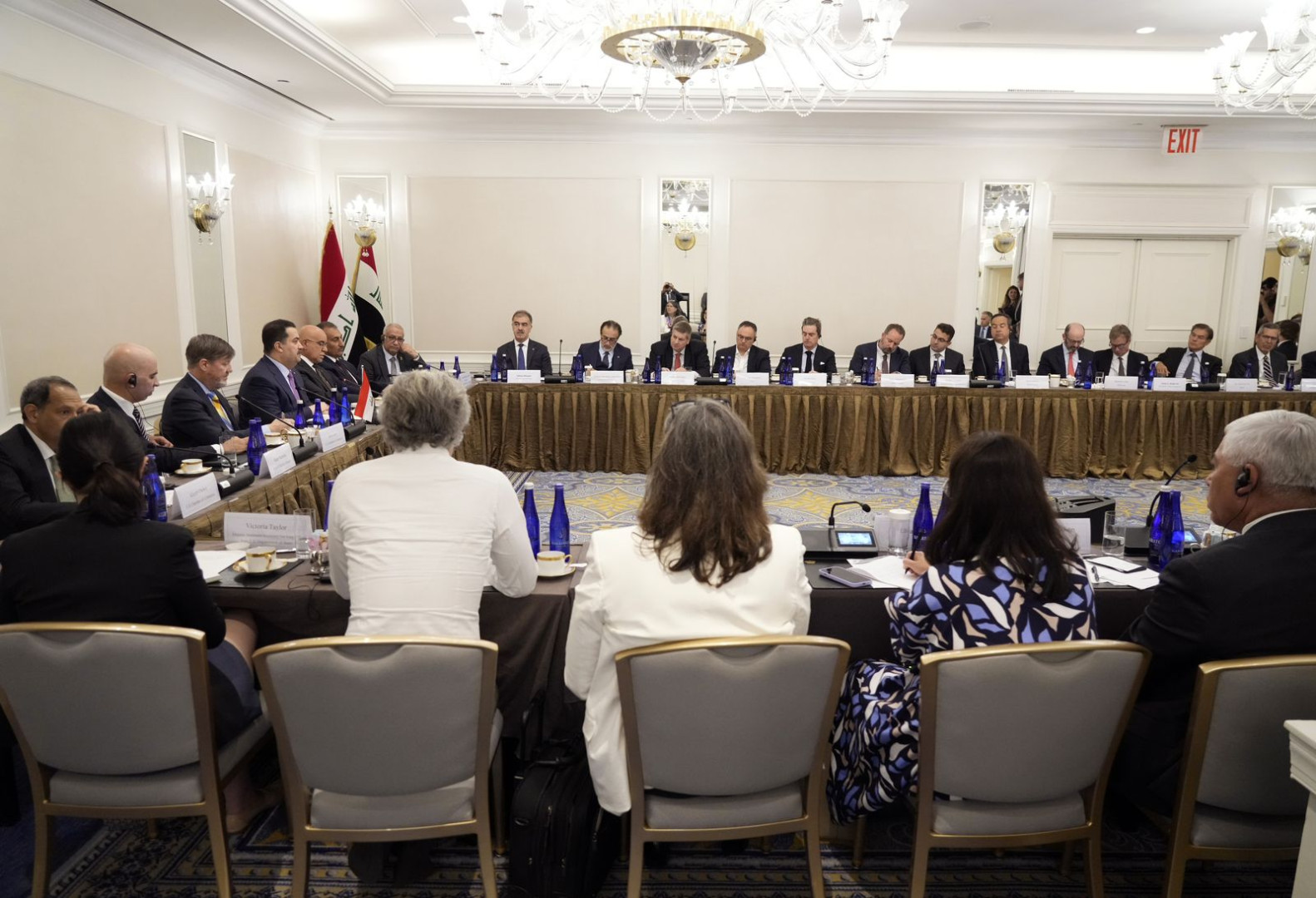
Shafaq News/ Iraqi Prime Minister Mohammed Shia Al-Sudani engaged in a pivotal meeting with the American Chamber of Commerce, where he was joined by prominent businessmen, investors, and representatives from major U.S. companies. Mr. Steve Lutes, Vice President of Middle East Affairs at the U.S. Chamber of Commerce, organized the meeting.
Prime Minister Al-Sudani expressed his gratitude for the organization of the meeting and emphasized Iraq's determination to harness its untapped natural resources for the benefit of its citizens while enhancing its strategic relationship with the United States.
During the meeting, the Prime Minister's address revolved around key points, including oil, gas, economic reforms, and investment.
In his statement, Al-Sudani articulated, "Our government is committed to directing revenue towards diversifying crucial economic sectors beyond oil, recognizing the need to reduce dependence on oil for budget stability and meeting financial obligations, a departure from past practices." He added, "The wasteful practice of discarding associated gas will cease in 2-3 years, with the anticipated completion of gas projects initiated in collaboration with Total, Emirati, and Chinese companies during the fifth licensing round."
Highlighting a historic milestone, Al-Sudani stated, "We have unveiled 11 fields and exploration blocks in Anbar, Nineveh, and Najaf governorates, housing natural gas resources that will see their first-ever investment in Iraq's history." He emphasized that economic reform remains a top priority, contingent on a vibrant and capable private sector working closely with the government.
In his efforts to create a conducive business environment for foreign enterprises, explicitly focusing on American companies, Al-Sudani affirmed, "This aligns with the vision for the partnership between Iraq and the United States." He also expressed strong commitment to reducing bureaucracy and combating corruption through legal means, ensuring that companies are not subjected to extortion or excessive red tape.
"We will personally oversee and champion every project and file associated with companies, resolving all obstacles in the process," Al-Sudani declared. He further revealed ongoing reforms in the tax and customs systems, with preparations underway for an economic reform bill aimed at addressing gaps in multiple laws.
Regarding trade and investment relations, Al-Sudani disclosed that Iraq, in coordination with the U.S. Trade Representative Office, is actively preparing for the third session of the Trade and Investment Framework Agreement in early 2024. This agreement addresses challenges affecting trade and investment relations between Iraq and the United States.
The Prime Minister highlighted the government's commitment to supporting the private sector through the Iraq Fund for Development, which is set to receive increased capital in 2024. Al-Sudani also announced discussions with various Arab and international investment funds, notably the Saudi Investment Bank, to foster industrial and agricultural projects in Iraq.
He disclosed agreements with German and Italian institutions to supply production lines to essential laboratories and factories in Iraq's industrial sector. This collaboration involves a 15% contribution from Iraqi businessmen, with the government providing the remaining 85% as a sovereign guarantee.
Addressing healthcare services, Al-Sudani shared that Iraq has introduced a health insurance law and is collaborating with specialized companies to enhance healthcare delivery. He also proposed six hospital projects, encouraging specialized American companies to participate in providing medical and healthcare services.
In response to water scarcity, Al-Sudani emphasized adopting modern irrigation methods and the potential for specialized companies to optimize the agricultural sector. He revealed successful negotiations with Emirati, Chinese, and Iraqi companies to establish solar energy stations and an agreement with Total to generate 1,000 megawatts of solar energy.
